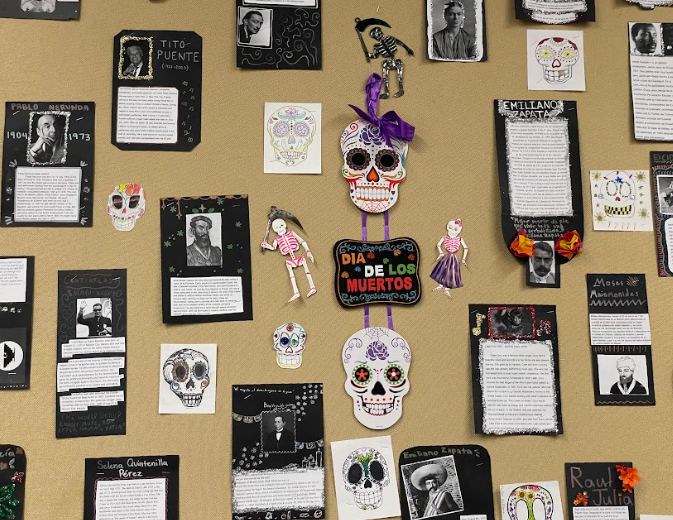Should students take a foreign language all
four years?
By Lillian Doiron-Wahlstrom, Reporter
At VHS, taking at least two years of foreign language classes is a graduation requirement, though many choose to take three or four years. Taking multiple years of language classes has the possibility of many benefits, including higher likelihood of getting hired at a job, and is a useful skill to have in the case of meeting someone whose first language isn’t English.
Knowing two or more languages challenges people to think about how they communicate and interact with others in ways they may not even realize, Powell emphasizes some benefits of learning a language.
“I think that taking four years of language helps develop your brain in unexpected ways,” Spanish teacher Sarah Powell said.
Powell feels that learning a language is a vital skill to have not just due to the words learned but because of the vast cultural and social aspects that are also introduced. This appreciation for the culture and history surrounding language is something that Powell feels strongly about.
“When we’re teaching language, we’re not just teaching words; we’re teaching thoughts and ideas and history and culture of other places, and having that ability to talk to people and understand where they’re coming from is pretty fundamental in this world,” Powell said.
Despite the positives, some people at VHS feel that the school language classes can be ineffective at times due to the idea that they don’t teach real world language skills and comprehension. Along with not feeling connected to the culture that they are supposed to be immersed in and learning about.
“Sometimes I feel like I’m just learning words and their translations,” sophomore Elouise Lawrence said. “I don’t feel like I’m thinking in that language.”
Despite the flaws, Lawrence appreciates the foreign language program at VHS.
“I think [taking a language] is a really important thing to do,” Lawrence said.

Many people feel a similar sentiment towards language, as being able to speak multiple languages can give someone a broader sense of the world around them.
“Any foreign language, in my mind, is essential for life,” Adrienne Selvy, the French teacher, said.
Selvy feels that learning a language can give someone varying experiences that are beneficial in a school and work environment, along with aiding in the ability to learn and process information.
“Having proficiency in a foreign language helps you be more competitive when you find a job because you have more skills,” Selvy said. “It contributes to your ability to process information that you’ve developed after four years of discipline about learning.”
Getting accepted into a college—or for a job—is a multifaceted process that involves many different factors, and taking a foreign language can be a piece of that puzzle for many people.
Despite some arguments that the way language is taught at the school could be better, many still agree that learning a second language is a critical skill. Lawrence agrees with this, although she wishes there were more immersion opportunities given.
“I think that speaking to people that actually speak the language would help people learn how to engage in conversation better,” Lawrence said.
In the end, the decision to take a language for two or more years is entirely up to the individual.
“Anything that you’re interested in is an amazing way to make your brain stronger, and to meet people, and to go on adventures,” Powell said. “And it is all good.”
